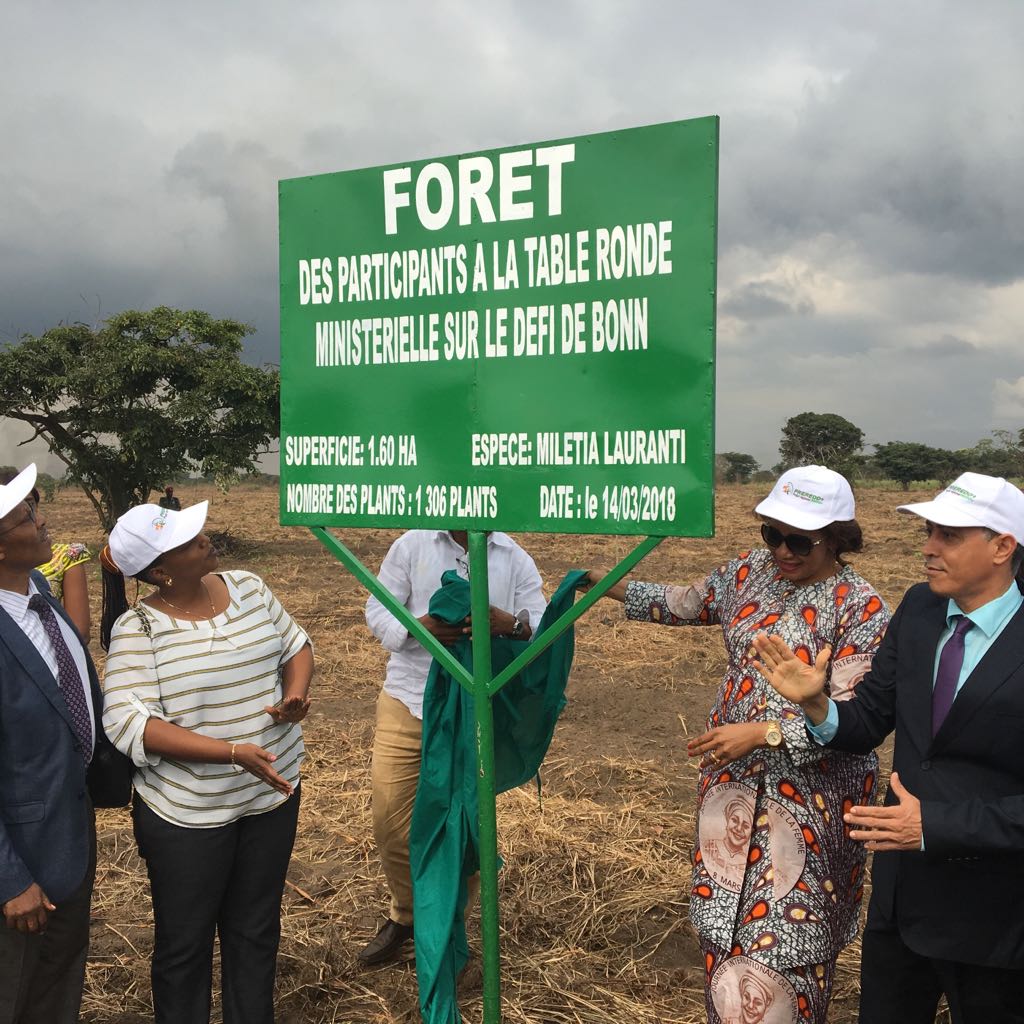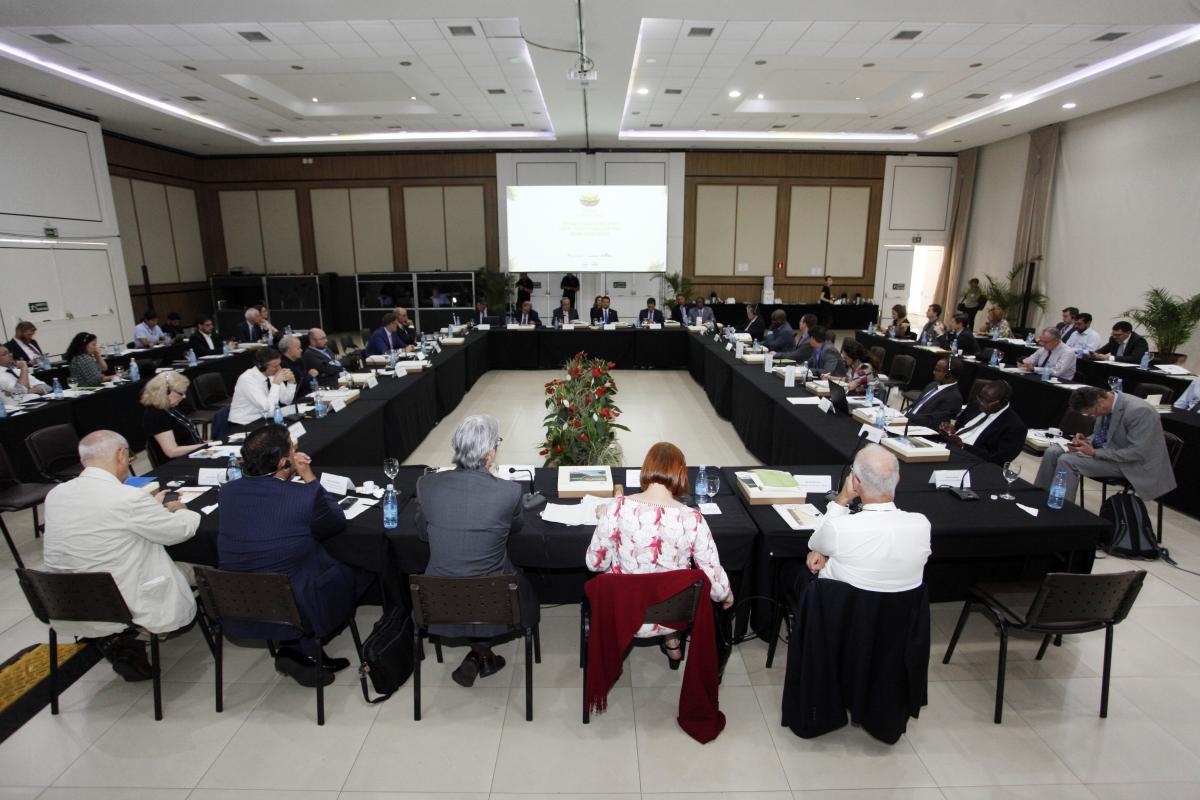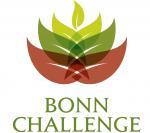Global headway for Bonn Challenge at Brazil and the Republic of Congo events
Major high-level Bonn Challenge events moved global forest landscape restoration action forward last week – from a joint strategy to pursue implementation financing in Central Africa to a pledge that nearly doubles that of one of the Bonn Challenge’s most active sub-national players, Khyber Pakhtunkwa (KP) province of Pakistan.
With two high-level Bonn Challenge forest landscape restoration (FLR) events taking place in the Republic of Congo and Brazil in mid-March, expectations were high for progress towards the world’s foremost restoration initiative. In the Republic of Congo, a large group of delegates contributed to the discussions in preparation for the 3rd African High Level Roundtable on the Bonn Challenge and in Brazil, 30 delegates met for the 3rd International High Level Roundtable on the Bonn Challenge.
African high-level roundtable
At this meeting, hosted by the Republic of Congo in collaboration with COMIFAC and IUCN, government ministers and FLR experts from 10 countries across the region and the international community addressed how to accelerate and finance the implementation of the Bonn Challenge. One of the main take away messages was that regional coordination across initiatives and amongst partners within countries was key in order to scale up efforts to strengthen restoration action, as well as to ensure a sustainable use of wood energy.
This event culminated in the adoption of the Common strategy for the mobilization of financial and technical resources for the implementation of Bonn Challenge commitments. This common strategy reconfirms, at the highest levels, the commitment that countries who are part of COMIFAC share for FLR and the Bonn Challenge. Among the action points set forth in this strategy, it calls for COMIFAC countries to conduct detailed assessments of restoration opportunities with a focus on identifying the economic benefits, prepare a regional investment programme that acknowledges the need to reduce pressure on forests for food and fuel, identify avenues to engage with international funding mechanisms such as the Green Climate Fund and engage diverse stakeholders. The COMIFAC countries will also contribute to the development of the Bonn Challenge Barometer to track progress on Bonn Challenge pledges.
Rosalie Matondo, Minister of Forest Economy, Republic of Congo encouraged COMIFAC countries to act quickly on these recommendations saying, “It is necessary to fund and implement concrete activities that allow forest conservation and the planting of new trees in a sustainable manner that generates income and improves livelihoods. The COMIFAC countries call on the international community for an increase in mobilisation of resources, reinforcing the efforts that countries are undertaking to achieve the Bonn Challenge pledges.”
One day later in Brazil
At the global Bonn Challenge event in Brazil, Ministers and other government leaders from Peru, Bangladesh, El Salvador, Ethiopia, Malawi, Uruguay, Brazil, Ecuador and the Dominican Republic along with other restoration leaders from around the world met to exchange experiences on FLR innovations, implementation, financing and monitoring in the context of the Bonn Challenge.
The event revealed the extent of progress in several jurisdictions. Anisul Islam Mahmud, Minister of Environment and Forests from Bangladesh, spoke about Bangladesh’s Social Forestry Programme which has distributed US$ 34.8 million to date and benefited 652,955 individuals, 121,507 of whom were women. Dr. Clement Chilima, Director of Forestry, Ministry of Natural Resources, Energy and Mining, presented the success of farmer managed natural regeneration (FMNR) programmes in Malawi and their efforts to include the private sector through Payment for Ecosystem Services (PES) schemes. Alfonso Rafael Alonzo Vargas, Minister of the Environment and Natural Resources, Guatemala, highlighted that the country has already restored 547,000 hectares and reaffirmed an intention to exceed their Bonn Challenge commitment.
Financing of restoration was a key topic for participants. Bangladesh, Pakistan, Guatemala and others shared how they have leveraged domestic funds to support implementation. It was recognised that allocation of domestic resources to restoration sends a positive signal to potential external investors and donors. Rachel Biderman, Director, World Resources Institute Brazil called on NGOs to support countries in developing bankable FLR projects. She, and other delegates, flagged the need for monitoring mechanisms. The IUCN Bonn Challenge Barometer of Progress was highlighted as a flexible yet credible tool to support countries in tracking progress on their commitments as well as helping countries identify bottlenecks and unlock financial and technical support to address them.
The event also resulted in several announcements. In his capacity as the Chair of KP Green Growth Initiative (and IUCN Global Vice President) Malik Amin Aslam Khan announced that the Khyber Pakhtunkwa (KP) province in Pakistan is proud to significantly enhance its pledge through a commitment of an additional 252,000 hectares. The KP pledge has the distinction of being the first sub-national pledge, the first pledge to be fully implemented, and the first pledge to be increased.
Highlighting the immense benefits El Salvador has achieved through implementing its 1 million hectare Bonn Challenge pledge, Dr. Jorge Quezada, who presented on behalf of Lina Pohl, Minister of Environment, El Salvador, announced a proposal to declare a United Nations Decade of Ecosystem Restoration for 2020-2030. The proposal received strong support.
Delegates welcomed the news that these roundtables in the Republic of Congo and Brazil are just the first in a series of high level discussions on the Bonn Challenge slated for 2018. In May, the government of Guatemala is hosting a Latin America dialogue on the Bonn Challenge and in June, governments from Central Asia and the Caucusus will convene in Kazakhstan for the first regional Bonn Challenge roundtable. A roundtable on the Bonn Challenge in Asia is planned for late 2018. These roundtables play a critical role in increasing ambition on FLR and provide a platform for countries to share their experiences with restoration.
Both roundtables resulted in reaffirmed support for FLR and the Bonn Challenge as well as for strengthened collaboration within and across countries and regions.
The Bonn Challenge is proof that we can achieve transformational change through collaboration and purposeful partnerships. In 7 short years, the Bonn Challenge has successfully attained 160 million ha commitments from 47 entities. -Malik Amin Aslam Khan







